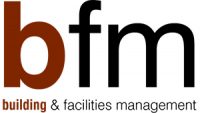A clean air conditioning system: the key to lower building costs and fresher air

Good air conditioning hygiene increases a building’s energy efficiency, lowers its carbon footprint, improves indoor air quality and saves building managers time, energy and money. Barry Lea, Chairman of Advanced Engineering, explains why – and offers essential advice to facilities managers on preventative A/C maintenance.
Does your building surround people with fresh, beautifully clean, air-conditioned luxury? Or does it subject them to odd smells, allergies and air-conditioning misery?
If the coils of your air conditioning system are dirty, the results will include unpleasant odours, allergic reactions and the spread of diseases. In short, poor Indoor Air Quality (IAQ).
All of these avoidable symptoms stem from the microbes that gather and breed in dirt collecting on the air conditioning coils and in their associated condensate trays.
Take away the dirt and these objectionable organisms will have nowhere to live.
What’s more, by keeping your coils clean you will increase the effectiveness, energy efficiency and service life of the air conditioning system – which means major cost savings for you.
The costs
The dirt coating any air conditioning coil’s surfaces acts as an insulating blanket, seriously affecting its ability to function effectively.
To achieve the same cooling effect, your system has to work harder, using more energy and putting extra pressure on its components – particularly the compressor, an expensive item to replace.
If the compressor were to fail, it could lead to water leakage and damage to the very fabric of your building.
Dirty air conditioning coils can cause many varied problems:
- Reduced heat transfer within the system
- Decreased capacity to cool
- Increased energy consumption
- Increased operating pressures and temperatures
- Increased wear on the system, which can lead to component damage, system malfunctions and reduced life expectancy
- Reduced building energy efficiency
- Poor indoor air quality and potential for contamination (evaporators only)
The microbes
Changes to the Indoor Air Quality (IAQ) are one of the first things to be noticed by building occupants.
The main culprits involved in poor IAQ are fungi, bacteria and viruses. As we all know, bacterial activity often causes nasty smells. Fungi produce spores and defensive toxins which, along with the dead cells, waste materials and other by-products of the microbe colony, can trigger allergic reactions.
The bacteria and viruses include a number of organisms that cause disease in humans via airborne infection. All of these contaminants are constantly being pumped into the air by dirty systems.
Preventative maintenance
To avoid all of the problems described above, coil cleaning needs to become part of a planned regime of routine maintenance.
Advanced Engineering recommend a three-stage treatment process:
- Clean and disinfect the coil and condensate tray.
Use a good quality combined cleaner and disinfectant… one that meets the appropriate British and European Standards for both bactericide and fungicide. Examples include “SuperClean”, “CondenCide”, “EnviroCoil”, “EasyFoam” or the RTU range of products.
- Apply a protective coating to the coil and condensate tray.
This is not rinsed off. It remains in place (depending on the environment) for a minimum of 6 to 12 months, acting like a non-stick layer, preventing dirt and microbes sticking to the treated surfaces. The “CondenCide” and “Guardian” cleaning products are designed for this.
- Place a disinfectant strip in the condensate tray.
“StayClean” strips will slowly leach out a disinfectant, killing any microbes washed into the tray and preventing any further micro-organic growth. This helps control odours, and the “StayClean” and condensate mixture will also clean and disinfect the drain lines as it washes away.
As a finishing touch, a fragrance-enhancing gel (e.g. “SmellyJelly”) can be added to the unit to give a pleasant ‘just-cleaned’ freshness.
For further information on suitable cleaning products for you and your system, or to arrange a free site survey of your air conditioning, visit the Advanced Engineering website at www.advancedengineering.co.uk.





